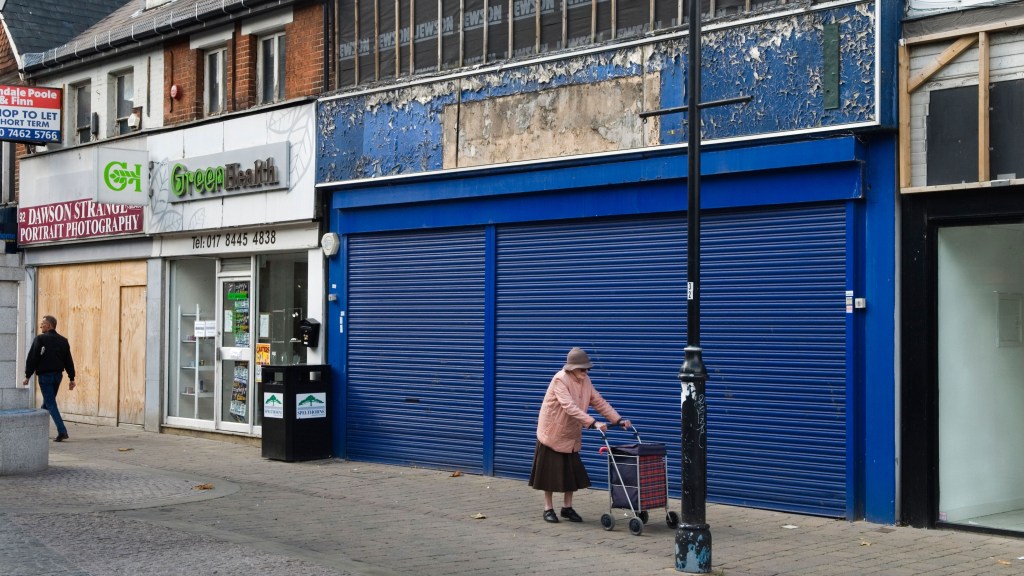Changes to Business Rates May Result in Job Cuts and Store Closures
Industry experts have raised alarms that the reduction in property tax relief will result in increased store closures and significant job losses, particularly affecting small retail, hospitality, and leisure businesses.
During her inaugural budget presentation as chancellor, Rachel Reeves announced the replacement of the current 75 percent discount on business rates, which is set to end next April, with a new discount of only 40 percent. This relief will apply to a maximum of £110,000 per business, which means that around two-thirds of business owners in these sectors will not benefit from the relief.
While businesses expressed gratitude for the extension of the relief program, initiated during the Covid-19 pandemic to support shops, cafés, and pubs, many voiced concerns about the cut. According to Altus Group, a property consultancy, this change will lead to an average increase of 140 percent in business rates bills—amounting to £688 million—for over 250,000 high street locations in England starting next April.
Vivienne King, chairperson of the Shopkeepers’ Campaign, which pushes for lasting reforms to business rates, stated this decision is a “step backward for businesses that have leaned on this support through tough times,” adding, “The chancellor does not seem to recognize the precarious situation of our high street shops. This will result in many facing unmanageable expenses and tough choices regarding their futures.”
Kate Nicholls, CEO of UK Hospitality, echoed her concerns, noting, “The reduced 40 percent relief translates to yet another financial burden for businesses. For small and medium enterprises, their business rates obligations will still escalate come April.”
She highlighted the challenges business owners will face, indicating that alongside an increase in minimum wage and national insurance contributions, the cumulative effect will make 2025 extraordinarily difficult for the hospitality industry, projecting an additional £3 billion tax burden for the sector.
In her budget, Reeves initiated a “conversation” about the longer-term vision for business rates, assuring that the government is dedicated to establishing a “fairer business rates framework that fosters investment and is suitable for the 21st century.”
She committed to reducing business rates for high street retailers to help balance competition with online giants.
Brick-and-mortar retailers have long argued that the existing business rates—a tax on commercial properties aimed at funding local services—are outdated and inadvertently offer an unfair advantage to online competitors such as Amazon. The Labour Party has promised, in previous election platforms, to address this imbalance to revitalize town centers.
Reeves also unveiled plans to implement permanently lower tax rates for “the most valuable properties” starting in 2026-27, funded by a higher multiplier for substantial properties, including distribution warehouses utilized by “online giants.”
Helen Dickinson, the CEO of the British Retail Consortium, noted: “While retailers appreciate planned future initiatives on rates, they are currently evaluating the ramifications of today’s announcements. There are still numerous unanswered queries regarding the new charges and discounts coming into effect from 2026. Increasing taxes on businesses with elevated rateable values might adversely affect not only distribution centers but also larger retail stores, which play an essential role in drawing customers to high streets and town centers.”
She emphasized that with retailers contributing over 21 percent of the total business rates in the economy, “the answer lies not in merely redistributing the financial burden but in finding solutions that address the disproportionate impact of business rates beyond the retail sector.”
John Webber, head of business rates at Colliers, expressed disappointment with the chancellor’s announcements concerning business rates, stating they were “deeply disappointing.” He remarked, “Despite pre-election commitments to reform business rates, no substantial measures were revealed. The lack of consultation, with only a discussion document presented, offers minimal relief rather than the fundamental changes needed.”




Post Comment